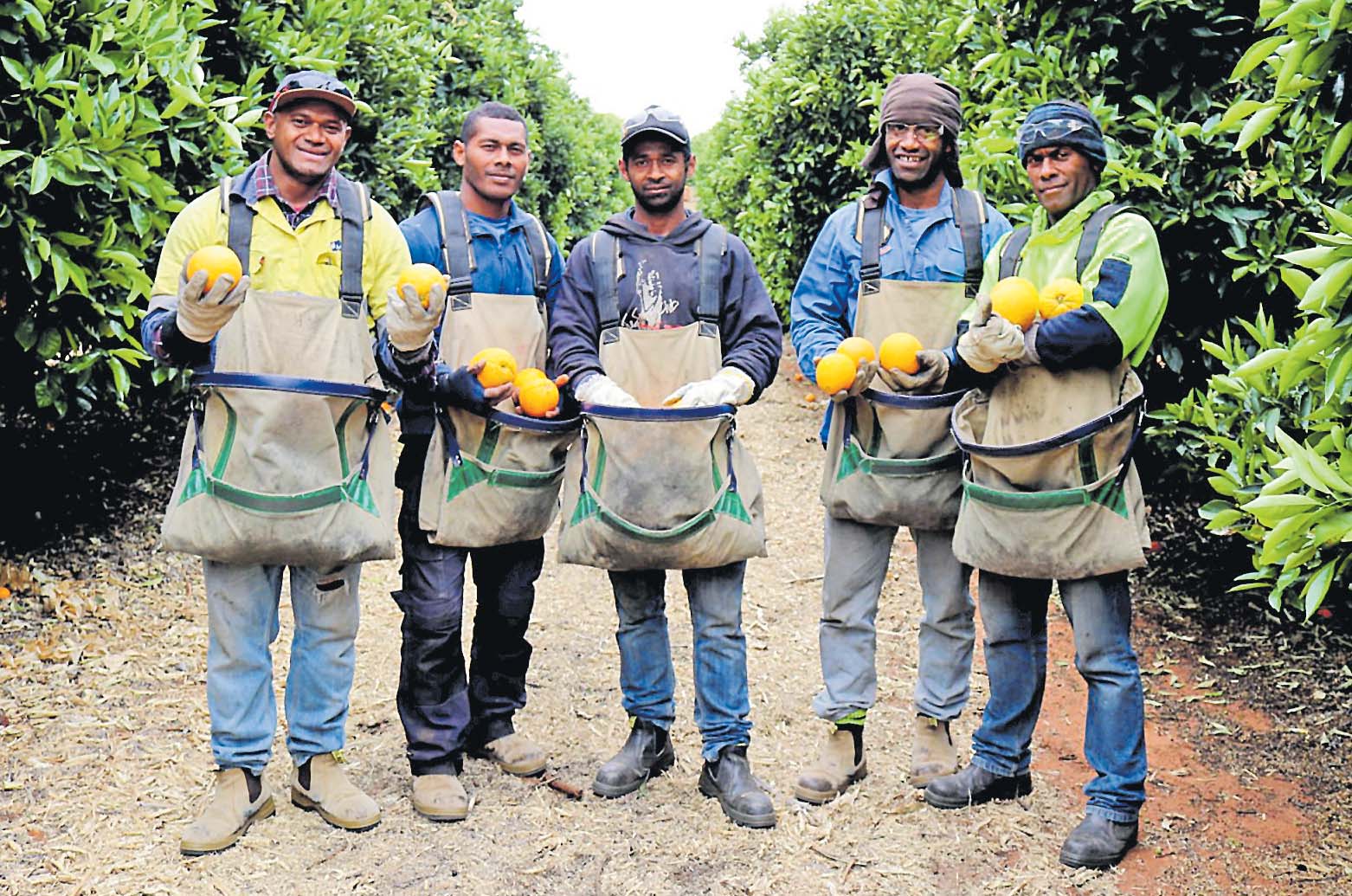SEASONAL workers are treated as modern slaves in Australia.
This startling information was revealed to the Catholic Conference of Heads of Religious Missionary Organisations in the Pacific, held at the Pacific Regional Seminary on August 29 to September 1.
Fr Peter O’Neil from Talitha Kum – Australia, reported that seasonal workers have to surrender their passport to Australian labour agencies, pay for transport and accommodation and other hidden costs.
Labour agencies milk their money from the hard labour of seasonal workers.
With all the hidden costs, seasonal workers find it hard to save money to send back home.
They are treated as slaves.
Talitha Kum was established in 2009 with the International Union of Superiors General (UISG) as an international initiative against human trafficking and exploitation.
Talitha Kum promotes collaboration among networks organised at national, regional and continental level, actively supporting victims, survivors and people at risk.
As an umbrella network of sisters-led networks, Talitha Kum is grounded in the long, rich tradition of Catholic women, inspired by the life-giving ministry of Christ, who are committed to community work and collaboration, following the example of the Triune God.
Talitha Kum reported that seasonal workers scheme under PALM (Pacific Australia Labour Mobility Scheme) is a form of human trafficking and forced labour when it does not protect the welfare and dignity of seasonal workers.
The program can lead to workers becoming victims of exploitation forced labour and abuse, to the point that they are not paid with fairness and justice.
Many people largely focus on monetary benefits of the scheme which enable workers earn fast money and send it to families back home.
On the other hand, very little attention is given to the welfare and the rights of the seasonal workers, who may subsequently face many different kinds of challenges.
Fiji recently has become a remittance economy joining our Oceania Island neighbours, Tonga and Samoa.
Many of our people are leaving the islands to work overseas.
While they may earn money for their families back home, there are hidden costs to be considered.
These include brain drain, family separation and breakdown, poverty of families in home country, emotional and psychological stress, loneliness, and others.
With little knowledge and orientation towards their work, seasonal workers are vulnerable to exploitation and unjust treatment.
Seasonal workers lack understanding of work contracts where contracts are written in a language they do not understand.
They experience insufficient number of working hours resulting in many workers disengaging from the program.
They are not provided welfare and health support.
Pregnant women are not cared for.
Worse still, when the labour agent holds your passport, you are his slave.
As a result, some seasonal workers disengage from the PALM program and do not achieve their expectations.
While our government leaders applaud the economic contribution of foreign remittance, Talitha Kum reports show the sinful side of seasonal workers’ scheme.
Guide to eradicate human trafficking
The Catholic Church through Pope Francis has published “Pastoral Orientations on Human Trafficking” to guide the Churches response to human trafficking and modern-day slavery. Pope Francis states: “Among so many open wounds in our world, one of the most troubling is the trade in human beings, a modern form of slavery, which violates the God-given dignity of so many of our brothers and sisters”.
Pope Francis adds: “Each year thousands of innocent men, women and children are victims of exploitative labour and sexual abuse, and of organ trafficking, and it seems that we have become so accustomed to this, as to consider it a normal thing. This is deplorable; it is cruel; it is criminal! I wish to remind everyone of the duty to combat this abhorrent plague, a form of modern slavery.”
Pope Francis says co-operation and co-ordination among national and international institutions are crucial and fundamental to eradicate human trafficking and to make everyone’s actions more expeditious and effective, whether in places of origin, transit or destination.
Much more needs to be done on the level of raising public consciousness and effecting a better co-ordination of efforts by governments, the judiciary, law enforcement officials and social workers.
States should share relevant information on Human Trafficking with other States and develop joint responses in terms of prevention, protection and prosecution.
Greater co-operation is needed, as well as the provision of technical and other assistance to countries all along the human trafficking routes.
In order to be effective, co-operation and co-ordination must also involve civil society, faith-based organisations and religious leaders as well as the business sector and media.
Cooperation between the Bishops and civil authorities, each according to their own mission and proper nature, to the end of discovering the best practices to accomplish this delicate task, is a decisive step in assuring themselves that the will of the governments reaches the victims in a direct, immediate, constant, effective and tangible way.
In Fiji and Pacific Island states there is the urgent need to protect dignity of seasonal workers.
This will include proper orientation for seasonal workers, education on dignity of workers, working contracts, budgeting, where to get social
support, and cross culture awareness.
• PETER LOY CHONG is the Catholic Archbishop of Suva. The views expressed in this article are his and not of this newspaper.


